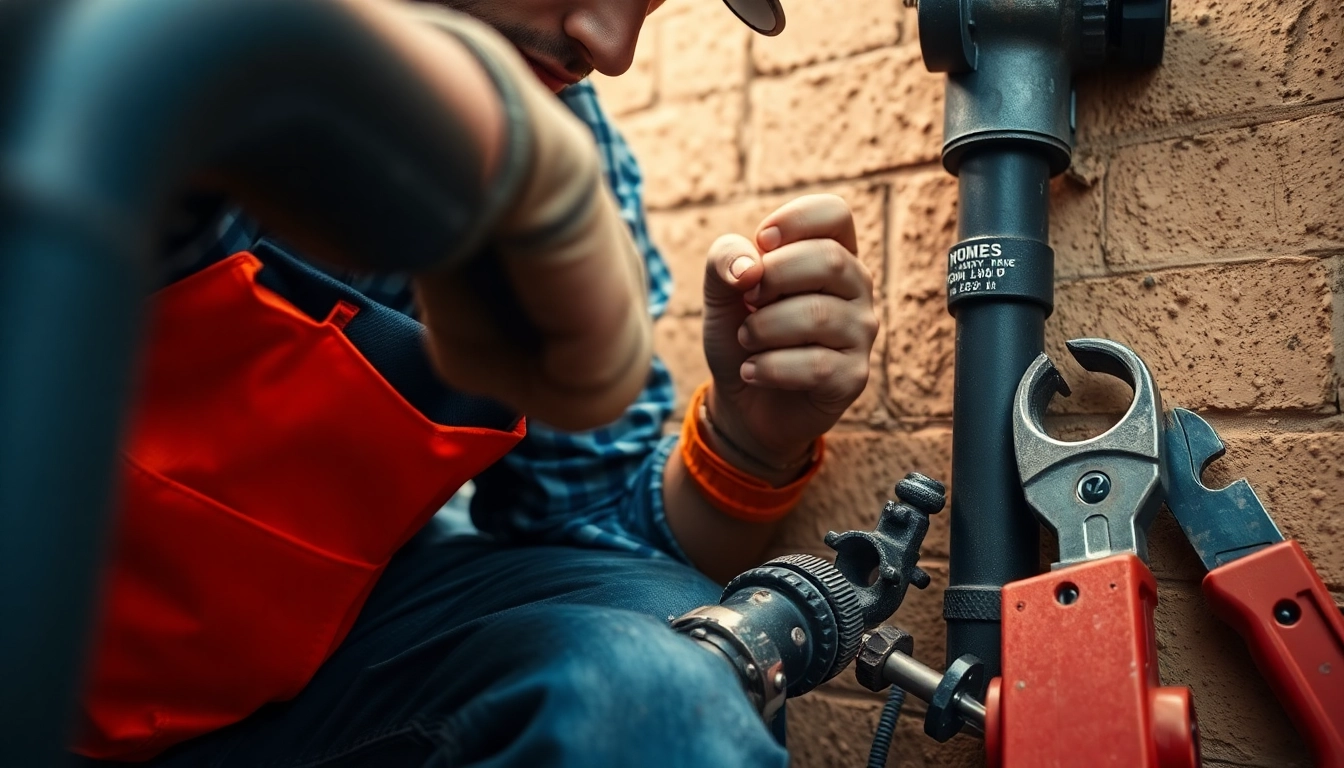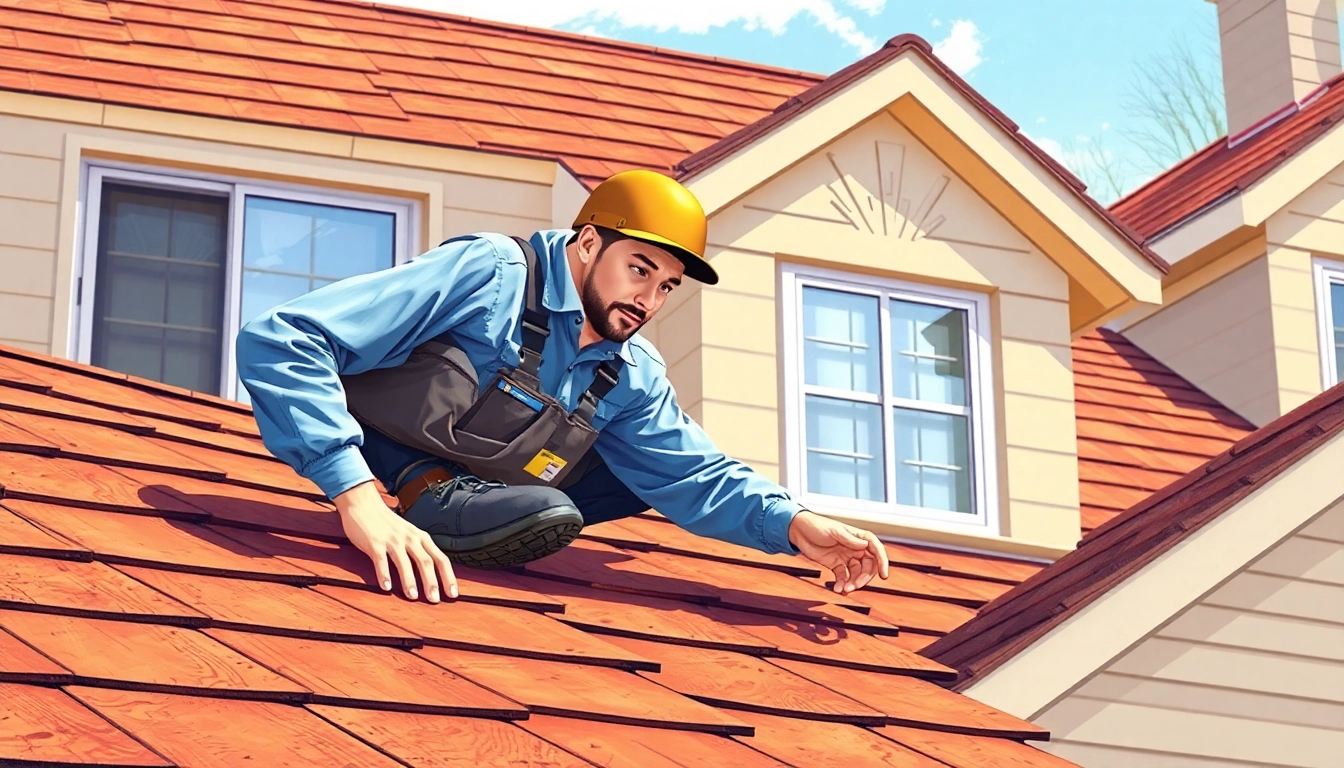Understanding Emergency Plumbing Services
When faced with sudden plumbing issues, knowing how to respond can save both your property and your peace of mind. Emergency plumbing services are designed to tackle urgent situations, providing rapid assistance when unexpected problems arise. This guide delves into the intricacies of emergency plumbing, helping you understand the nature of these services and how to effectively engage with them, especially when seeking an emergency plumber.
What Constitutes an Emergency Plumbing Situation?
Emergency plumbing situations often manifest as water leaks, severe clogs, or water heater malfunctions. But what exactly qualifies as an emergency? Generally, any plumbing issue that poses immediate risk to your property or well-being can be classified as an emergency. This includes:
- Significant water leaks that could lead to flooding or structural damage.
- Clogged drains that prevent normal usage of bathroom or kitchen fixtures.
- Malfunctioning water heaters that render your home without hot water.
- Malfunctions in the main water line that could compromise the entire plumbing system.
- Any scenario that poses a risk of mold growth, sewage backup, or hazardous conditions.
Why Quick Response is Crucial
In plumbing emergencies, time is of the essence. Delaying action can lead to extensive damage and expensive repairs. Water damage, for instance, can lead to structural problems, mold formation, and damage to personal belongings. A quick response allows for mitigations that can significantly reduce these risks. Additionally, many homeowners are unaware that their homeowner’s insurance may cover emergency plumbing repairs, making it even more vital to act swiftly to prevent worsening damage that could lead to higher costs in the long run.
The Role of a Qualified Emergency Plumber
A qualified emergency plumber plays an essential role in effectively managing plumbing crises. Their training equips them to diagnose problems quickly and implement solutions efficiently. Key responsibilities include:
- Rapid assessment of the plumbing issue to determine the appropriate response.
- Provision of short-term solutions to minimize damage while planning for permanent repairs.
- Advising homeowners on preventative measures and routine maintenance to avoid future emergencies.
- Contracting with suppliers to ensure timely procurement of necessary materials.
Common Plumbing Emergencies and Their Solutions
Understanding the most common plumbing emergencies can prepare you for quick responses and effective solutions.
Leaky Pipes: Causes and Quick Fixes
Leaky pipes are a frequent plumbing problem that can exacerbate quickly. Common causes include:
- Corrosion of pipes due to age.
- Poor installation or incompatible materials.
- Sudden temperature changes causing pipes to expand and contract, leading to leaks.
To fix a leaky pipe, you can attempt the following quick fixes:
- Shut off the water supply to the affected area.
- Use plumber’s tape or epoxy putty for small, manageable leaks.
- For larger issues, it’s often best to call a qualified emergency plumber who can replace or repair the damaged pipe.
Clogged Drains: Prevention and Remedies
Clogged drains are another common emergency, often caused by the accumulation of hair, grease, food particles, and other debris. Quick remedies include:
- Using a plunger to dislodge the blockage.
- Employing a plumbing snake to reach deeper clogs.
- If these do not work, an emergency plumber can provide more advanced solutions, including drain cleaning chemicals or hydro jetting.
Prevention is also key. Regular cleaning of your drains and proper disposal of food waste can significantly reduce the likelihood of clogs.
Water Heater Failures: Emergency Protocols
Water heater failures can disrupt daily life, especially in colder months. Signs of failure include:
- No hot water when taps are turned on.
- Strange noises emanating from the heater.
- Leaking water around the tank.
If you suspect a water heater issue:
- Check the power source or gas supply to ensure it is functioning.
- Inspect for leaks and ensure the temperature is set appropriately.
- For persistent issues, contact an emergency plumber to assess and repair the heater.
Choosing the Right Emergency Plumber
Knowing how to choose the right emergency plumber can make all the difference during a plumbing crisis. Here are critical considerations:
What to Look For in Emergency Plumbing Services
When choosing an emergency plumbing service, consider the following:
- Availability: Ensure the plumber offers 24/7 service to address emergencies at any time.
- Response Time: A reliable service should provide a prompt response to your call.
- Transparency: Look for plumbing companies that offer clear and upfront pricing, avoiding any hidden fees.
Evaluating Credentials and Experience
Never hire an emergency plumber without evaluating their credentials. Check for:
- Licensing: Ensure they have the proper licenses and insurance to operate in your area.
- Experience: Look for review ratings, years in business, and specializations relevant to your emergency.
- Certifications: Additional certifications in specific plumbing systems or repair techniques can enhance a plumber’s qualifications.
Customer Reviews and Recommendations
Customer testimonials can provide insight into the quality of service offered by a plumber. Pay attention to:
- Overall satisfaction: Look for a high number of positive reviews relative to complaints.
- Response to reviews: A good plumber will actively address feedback, showing commitment to customer satisfaction.
- Word-of-mouth recommendations from friends and family can provide trusted leads.
Cost Expectations for Emergency Plumbing Services
Understanding the potential costs associated with emergency plumbing can help you budget for unforeseen circumstances.
Typical Pricing Structures Explained
Emergency plumbers often employ various pricing structures, including:
- Flat-rate pricing: This is a single fee for a specific service, regardless of time taken.
- Hourly rates: This involves billing based on the actual time spent on the job.
- Service call fees: Some plumbers charge a fee just to come out, in addition to the cost of repairs.
Factors Influencing Emergency Plumbing Costs
Several factors can influence the cost of emergency plumbing services, including:
- Time of service: Night and weekend calls often incur higher rates.
- Complexity of the job: More complicated issues require more time and materials, increasing costs.
- Location: Emergency plumbing services in urban areas might be pricier due to higher demand.
Ways to Save on Emergency Repairs
While some plumbing emergencies are unavoidable, you can minimize costs through proactive measures:
- Regular maintenance checks can identify issues before they become emergencies.
- Investing in quality fixtures and materials may reduce future repair costs.
- Remember to shop around—getting multiple quotes can help you find the best deal for your emergency plumbing needs.
Preventative Measures to Avoid Plumbing Emergencies
With proper care and maintenance, homeowners can significantly reduce the chances of facing plumbing emergencies.
Routine Maintenance Tips for Homeowners
Implementing regular maintenance routines is essential:
- Inspect plumbing fixtures for wear and tear, replacing old components proactively.
- Clean drains regularly to prevent clogs from forming.
- Flush your water heater at least once a year to remove sediment buildup.
Identifying Early Signs of Plumbing Issues
Being vigilant can help catch plumbing problems early. Look for:
- Unusual sounds coming from pipes or fixtures.
- Unexplained increases in your water bill.
- Slow drainage or recurring clogs, which may signal bigger problems.
Investing in Professional Inspections
Schedule periodic professional inspections to identify potential issues before they escalate. A qualified plumber can provide invaluable insight on the condition of your plumbing system, offer recommendations, and help you prioritize repairs or maintenance.



